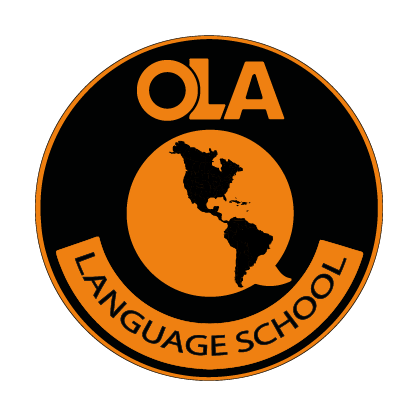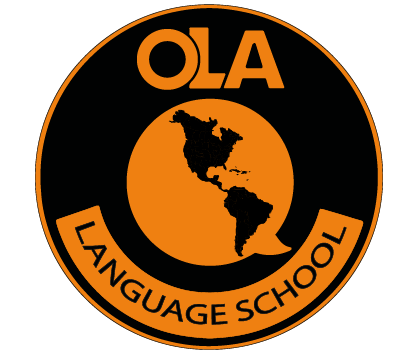Workshops & Training
Training For Educators & School Staff

Professional Development For Educators & School Personnel
At OLA Language School, we are committed to empowering teachers and school personnel with the confidence and skills needed to effectively support English Language Learners (ELLs). Our professional development programs are specifically designed to help educators, special education professionals, school counselors, psychologists, social workers, family engagement teams, principals, and central office staff build the expertise required to successfully engage and educate ELLs.
We offer a range of training and coaching services, both in-person and online, to ensure flexibility and accessibility. Our programs focus on equipping participants with practical strategies, cultural competence, and instructional techniques tailored to the unique needs of ELLs. By fostering a deeper understanding and confidence in working with diverse language backgrounds, we aim to enhance the educational experience and outcomes for all students.
Whether you prefer face-to-face interactions or online learning, we can customize our sessions to fit your schedule and goals. Choose from a variety of formats:
- 2-Hour Sessions: Quick, focused workshops designed for immediate impact.
- Half-Day Workshops (3 Hours): In-depth exploration of key topics with interactive elements.
- Full-Day Workshops: Comprehensive sessions that provide a deep dive into specialized content.
- 2-Day Workshops: Extensive training over two days for a thorough understanding and app
- Full-Day Cultural Immersion: An immersive experience that offers hands-on learning and real-world application.
- Coaching or Consulting: Personalized support via phone or Zoom for ongoing guidance and expertise.
Current Offerings
English Language Learners (ELLs) and their immigrant families face a variety of challenges that extend beyond learning a new language. These challenges often include adjusting to a new culture, coping with trauma, navigating the complexities of resettlement, and dealing with isolation. Our workshop, “Supporting ELL & Immigrant Families: A Comprehensive Approach Beyond Language,” is designed to address these issues through a holistic, social-emotional perspective.
In this session, educators and school staff will delve into strategies for providing robust support to immigrant students and their families. The focus will be on addressing not only language needs but also their broader emotional and social well-being.
Workshop Objectives:
- Cultural Understanding: Gain insight into the diverse cultural backgrounds and origins of immigrant students and families within your community, enhancing your ability to offer empathetic and effective support.
- Identifying Strengths and Challenges: Recognize the unique strengths and obstacles faced by immigrant students and their families as they integrate into their educational and community environments.
- Building Strong Relationships: Explore methods for establishing strong, trusting relationships between schools and immigrant families to foster effective communication and collaboration.
- Creating Inclusive Environments: Develop strategies for cultivating an inclusive classroom environment that celebrates the diverse backgrounds of immigrant students and promotes a sense of belonging.
- Addressing Key Stressors: Identify four primary stressors affecting immigrant children and families, and learn practical strategies to support their social-emotional needs effectively in the classroom.
In today’s diverse educational landscape, it’s essential to create school environments where immigrant and English Language Learner (ELL) families feel genuinely welcomed and supported. This dynamic workshop empowers educators and school staff with innovative strategies to foster an inclusive atmosphere, ensuring that every family feels connected and valued within the school community.
Workshop Objectives:
- Integrate Cultural Awareness into Curriculum: Explore ways to incorporate diverse cultural perspectives and experiences into the school curriculum, enhancing the relevance and inclusivity of educational content for immigrant and ELL students.
- Build Effective Support Networks: Develop strategies to create and strengthen support networks within the school and local community, connecting immigrant and ELL families with essential resources and services.
- Foster Peer Relationships and Collaboration: Implement programs and activities that promote peer interactions and collaborative projects among immigrant, ELL, and native-born students to build mutual understanding and support.
Raising children in a new country can be a complex journey for immigrant and refugee parents. They often face the challenge of adapting to new cultural norms, legal systems, and community structures, often without the support of extended family. This workshop offers professionals insights and practical strategies to effectively support these families as they navigate the complexities of parenting in a new environment.
Workshop Objectives:
- Uncover and Address Cultural Assumptions: Identify and challenge personal assumptions and biases about immigrant and refugee parenting practices to foster a more inclusive and empathetic approach to support.
- Understand Cross-Cultural Parenting Challenges: Explore the specific challenges and differences in parenting styles faced by immigrant and refugee families, and how these differences impact their adjustment and parenting strategies.
- Develop Practical Support Strategies: Learn and apply effective strategies and resources to assist immigrant and refugee parents in overcoming barriers, accessing community resources, and successfully integrating into their new cultural context.
This workshop equips school counselors, social workers, psychologists, family engagement staff, and community partners with the knowledge and tools needed to provide meaningful support to newcomer families, helping them thrive in their new environment.
Central office staff hold the key to transforming educational experiences for English Learner (EL) and immigrant students. This innovative workshop is designed to empower central office professionals with advanced strategies and tools to extend their impact beyond the EL department and lead systemic change that supports and uplifts EL and immigrant families.
Workshop Objectives:
- Elevate Cultural Competence: Develop and apply cultural competence strategies to ensure central office staff and district-wide personnel understand and respect the diverse cultural backgrounds of ELLs and immigrant families.
- Leverage Data for Decision Making: Utilize data effectively to identify gaps in support, measure the impact of initiatives, and make informed decisions to improve the educational experience for ELLs and immigrant families.
- Address Systemic Barriers: Identify and work to dismantle systemic barriers that may hinder the success of ELLs and immigrant families, such as language barriers, cultural misunderstandings, and administrative obstacles.
This workshop delves into the intricate realities faced by students and families who have crossed borders to seek new opportunities. It provides an in-depth exploration of the cultural and linguistic dynamics that impact their educational experiences and integration into new communities. Designed for educators, school administrators, and community partners, this session offers a comprehensive understanding of the unique challenges and strengths of border-crossing families, equipping participants with the knowledge and tools to foster a more inclusive and supportive learning environment.
Workshop Objectives:
- Analyze Cultural Contexts: Gain a nuanced understanding of the diverse cultural backgrounds of border-crossing students and their families, examining how cultural heritage influences their educational experiences, values, and expectations.
- Navigate Linguistic Challenges: Explore the linguistic barriers faced by these students, including the impact of language proficiency on academic performance and social integration, and learn strategies to support effective language development.
- Address Trauma and Resilience: Identify the psychological and emotional challenges associated with migration and displacement, and develop approaches to support the social-emotional well-being and resilience of border-crossing students.
- Implement Inclusive Practices: Discover best practices for creating an inclusive educational environment that respects and integrates the cultural and linguistic diversity of border-crossing families, including curriculum adjustments and classroom strategies.
- Enhance Community Engagement: Learn how to build strong partnerships with border-crossing families and local community organizations to support these students’ educational and social needs, fostering a collaborative approach to their success.
We proudly stand behind all teachers working with English Language Learners (ELLs)
Spanish Language Immersion Workshops
Dive into the Spanish language through immersive workshops where teachers can enhance their language skills, cultural understanding, and teaching methodologies.
Spanish Challenges for Basic Proficiency
Engage in hands-on language challenges to grasp fundamental aspects of the Spanish language, fostering a practical approach to learning.
Spanish for Educators Online and Face-toFace Sessions:
Convenient online and face-to-face sessions tailored for educators, focusing on Spanish language skills essential for effective communication with Spanish-speaking students and parents.
Training on Working with Immigrant Parents
Gain knowledge and skills to navigate interactions with immigrant parents and their children. Address cultural nuances, communication strategies, and foster positive relationships.
Spanish Cultural Immersion Trips
Participate in Spanish cultural immersion trips. These experiences not only enhance language skills but also provide valuable insights into the diverse Hispanic cultures.

